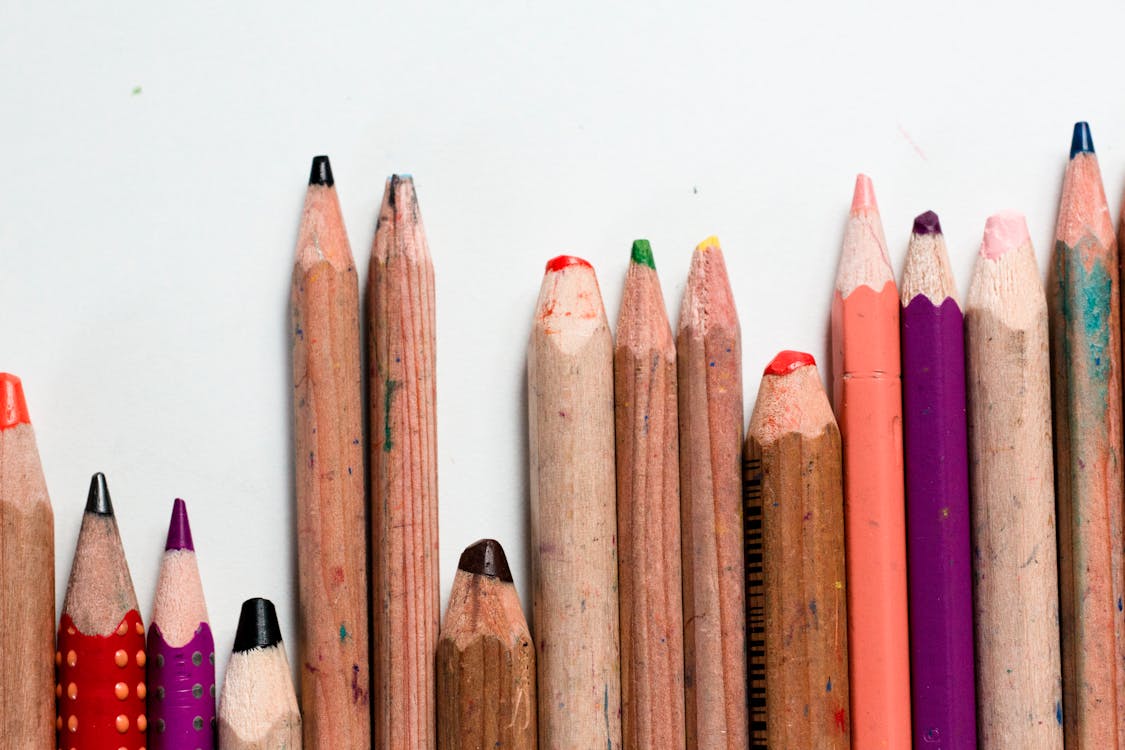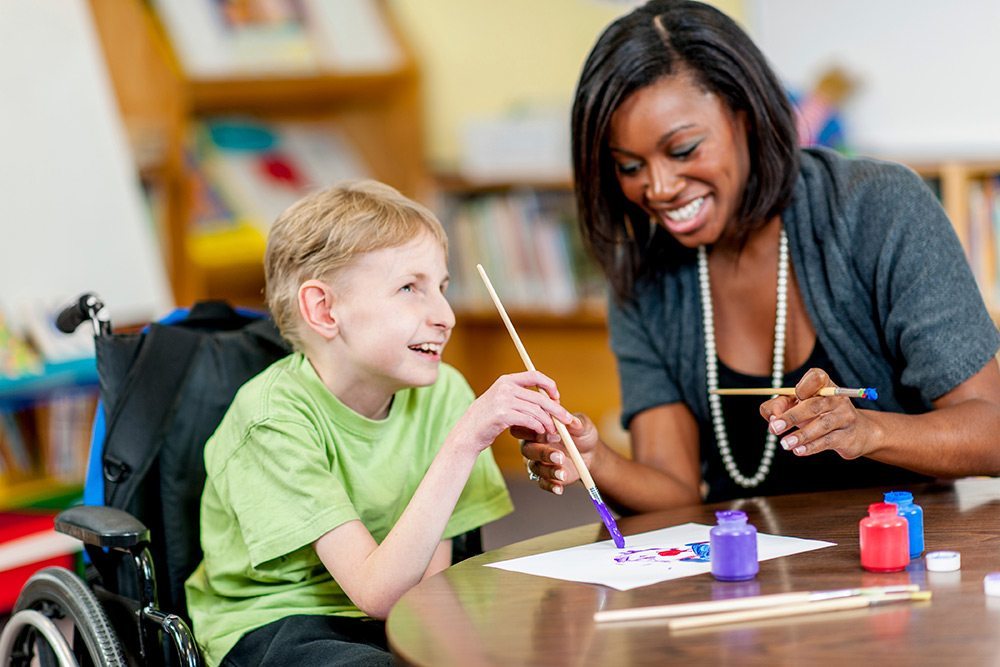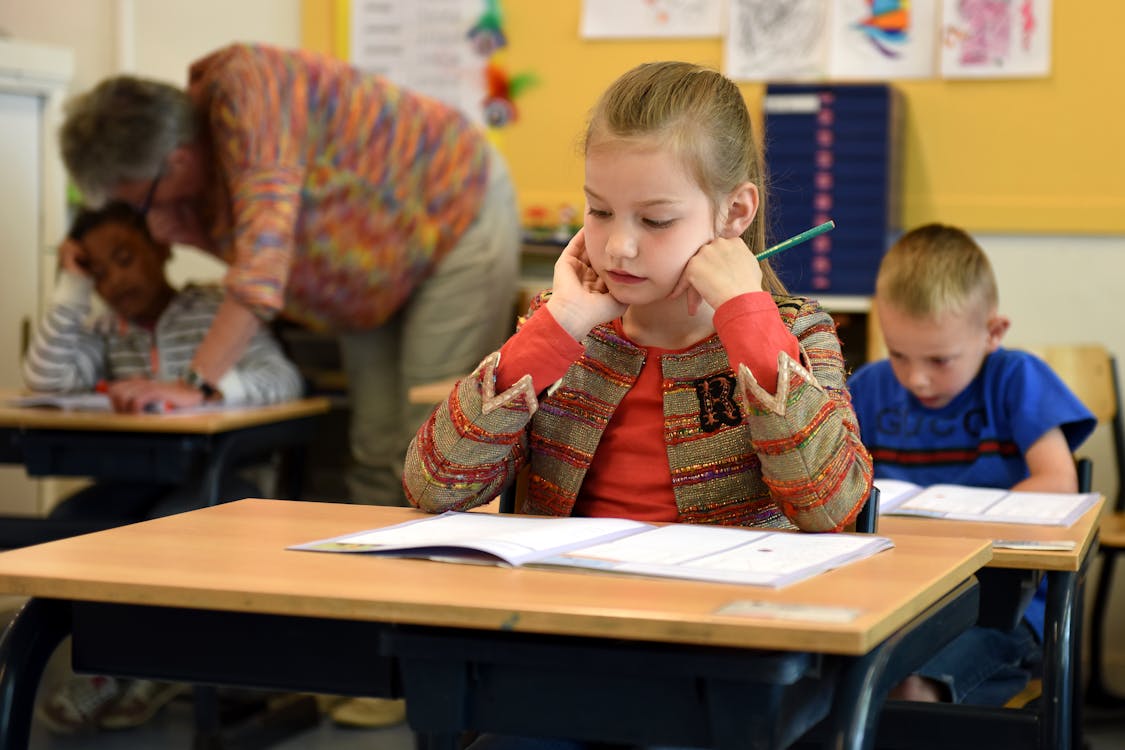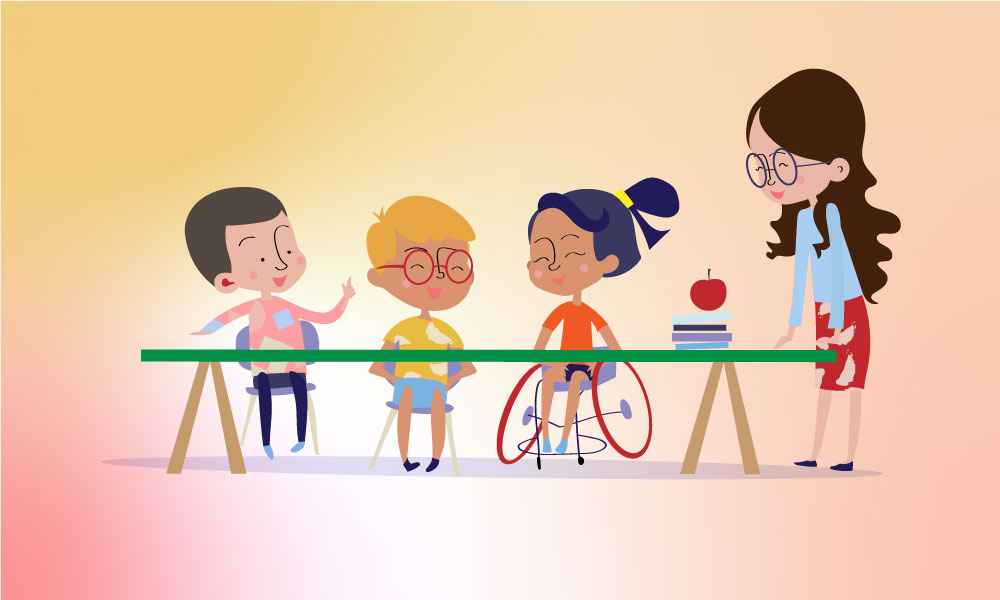Okay…so I have been attending a workshop series on special education for the past few days. Having known what special education is I thought it would be a nice opportunity to brush up the theoretical concepts. But to my surprise the workshops turned out to be eye opener in the sense that it gave me an insight into how important it is for every school to have a special educator on campus. And the issue begins with the lack of awareness. But don’t get me wrong here, I am not plagiarising any body’s work but just trying to put forward what I learnt, along with my views on it as I think that special education is of utmost importance.
WHAT IS SPECIAL EDUCATION?
In very simple words, special education is a remediation process for special kids. These special kids are usually the ones which require some extra help, which could either be in the form of deficit of certain abilities or a surplus of certain abilities. Yes! You read it correct; special education is not only for the differently abled kids (I request you to not use words like disabled kids or mentally retarted kids) but also for exceptional or gifted kids (you will get your answer for the why as you read ahead). Thus, the purpose of special education is:
- To provide for early interventions
- It is also a preventive measure for the kids
- To provide for remedial or compensatory measures after the identification of child with special needs
- To build a curriculum or a specialized intensive programme for these kids
Thus, special education caters to the individual needs of the learner and is also directed at making people understand that ‘Each Child is Unique’.

WHO NEEDS SPECIAL EDUCATION?
There are four areas in which development of an individual takes place namely, physical development, social development, cognitive development, and personality development. And all these developments take place simultaneously right from conception till we die. So a child with special need is someone who experiences deficit in either one of these areas of development or multiple areas of development and therefore requires assistance. These deficits are manifested in following ways:
- Sensory or physical impairment: could be a child with partial visual abilities or complete blindness or a child with hearing difficulties. It also includes challenges in fine motor or gross motor skills (i.e the ability to hold things and ability to sit or stand respectively)
- Cognitive and learning challenges: with deficits in reasoning abilities, memory issues, weak processing skills or short attention spans
- Social development issues: poor communication skills, difficulty in interpretation of emotions of others or challenges in interaction with others, speech and language difficulties.
- Behavioural challenges like hyperactivity or hypo activity, impulsivity and also a difficulty in sustaining friends.

Children with the above mentioned challenges need special education so that they can learn at their own pace. Also, as mentioned earlier gifted kids also need special education as the current curriculum could be very easy for them and as a result they might not be interested in what is going on in the class. So they might need some extra help from educators to form curriculums which matches their level of learning/intelligence.
COMMON DISORDERS WHICH REQUIRE SPECIAL EDUCATION
1. Specific learning disorder (SLD)
SLD or specific learning disorder is a neuro-biological disorder with difficulties in generally three areas- reading, writing and maths. It usually begins during school life but may not be identified until adulthood.
The common types of Specific Learning Disorder are:
Dyslexia which is characterized by difficulties in reading like word recognition, word pronunciation, poor spelling abilities. Remember when Ishan from Taare Zamen par says ‘the letters are dancing’ they are dancing for these kids.
Dyscalculia which is characterized by difficulties in number accuracy, reasoning, problem solving capabilities, and fluent calculation. (Please don’t confuse this with the fear of maths that children develop due to the societal expectations. These kids face real difficulties.)

Dysgraphia, characterized by difficulties organizing their thoughts on a paper. These kids might be having amazing ideas but they are just not able to write them down. And when they do it is accompanied by lots of spelling errors, grammatically incorrect sentences, lack of punctuations and illegible handwriting.
2. Attention-deficit hyperactivity disorder (ADHD)
ADHD is one of the most common types of disorder which is developed in children these days. The diagnostic criterion for attention deficit includes:
- Difficulty in paying attention to details
- Difficulty in maintaining or sustaining that attention in tasks as well as play activities
- Often does not follow through a series of instructions
- Has difficulty in organizing tasks and surroundings
- Very easily distracted by minimal noises or sounds around them
The diagnostic criterion for hyperactivity includes:
- Very fidgety
- Can’t sit in one place for longer period of time
- Often unable to enjoy leisure activities quietly
- Often interrupts others
- Often has difficulty waiting for their turn.
If the child’s symptom only matches the first part of the symptom then a diagnosis of ADD (attention deficit disorder) is given. If both parts of the symptoms are present, only then the diagnosis of ADHD is given.
3. Autism spectrum disorder (ASD)
Autism is a developmental condition which includes challenges in in social interaction, speech and non-verbal communication. They have difficulty in interpreting the emotional expression of others. They like to follow a fixed schedule and any change in the schedules may display tantrums. They also tend to have some kind of repetitive behaviours.
Children on the spectrum have a very difficult life as they are dependent on others for their daily activities. However, autism is on a continuum and their placement decides how independent they can be. Nonetheless, if provided with early interventions they are able to live independently and even earn for themselves. (PS: to know more about how exactly autism impacts the child’s life, I would recommend two shows on Netflix: Atypical and Love on the spectrum- both very beautifully depicts the life of a child on spectrum)

There are also other disorders like Intellectual developmental disorder (IDD), language disorder, speech difficulties like stuttering, speech-sound disorder, motor disorders which could also require special education.
HOW TO HELP A CHILD WITH SPECIAL NEED?
- Firstly, if you are a parent or a teacher-be aware of children around you. Be understanding to them. When they say they aren’t able to do somethings, don’t just ignore them thinking that the child is only making excuses to not do the work. Look out for above mentioned signs.

- Secondly, if you think the child needs some additional help, contact the special educator on the campus. Ask the parents if they have observed something like that at homes. Educating the parents is also very important because more often than not, parents tend to live in denial thinking their child can’t have such difficulties. But be careful to not label them.
- Thirdly, after recognizing some signs ask the parents to visit a clinical psychologist to have a diagnosis. Neither the Special educator nor the teacher has that training to make a diagnosis. A clinical psychologist makes use of various tests which have been standardized. A psychological assessment helps to know how much support or additional assistance the child needs.
- After a diagnosis, the special educator can help in the remediation process by designing a curriculum that meets the needs of that particular child by collaborating with the class teacher, subject teachers, parents, peers and the administrative staff of the schools.
- And if you aren’t a teacher or a parent, then as adults the least you can do is spread this awareness (now that you know after reading this). Be empathetic to people around you, especially to children with special needs. And if you get an opportunity to work with these kids, do that. They don’t need our sympathy but only our acceptance.
FOR THE CHILD, THE WORLD LOOKS LIKE…
A place where nobody cares for him or her. A place where he or she is lovable only when they are able to score. A place where he or she feels guilty for not being able to do things which peers of his age are able to do very easily. A place where he is labelled for not being ‘normal’. A place where he or she is bullied or made fun of for not able to complete the schoolwork. A place where the teacher is only shouting at him or her. A place where anything he or she says will be an excuse for not doing tasks.

Often when we see a child with special needs, we often perceive them as unintelligent. Lower IQ levels and other challenges can coexist, but it is not necessary. This is one of the biggest myths. In fact, these are the brains with the most amazing and creative ideas. They might have challenges in academics, but could be brilliant with machines like computers or could be great musicians or painters. To identify their talents is what special education is all about.
As a society, we all run after the traditional definition of success (with high scores and percentages) that we often forget that there is something special about each and every one of us. And the child with special needs is not an exception. He or she just needs some extra help to figure that out. That recognition would only take place in the presence of a special educator or someone who is aware of such challenges.
Lastly, just place yourself in the child’s position. Try to feel that eruption of frustration the child might be feeling when nobody around him or her is ready to believe what they are saying. The child needs only love and understanding from us. Being empathetic to them is the first step towards helping them. With the support of parents, teachers, and the special educator they would also be able to live the lives freely. Ending with a quote by George Evans:
“EVERY CHILD CAN LEARN. JUST NOT ON THE SAME DAY OR THE SAME WAY”

Thank you so much for reading! See you next time!!
And, if you haven’t read my previous blog, here is the link
REFERENCES:
- https://www.centralriversaea.org/special-education/
- Inclusive Education Doesn’t Just Benefit Children with Special Needs
- LAO Releases Report on Special Education in California
- DSM-5




4 Responses
Every single line ❤
Thank you so much!!
Great..great..great.. keep going on …
After i read this article. I feel better and feel proud to myself just because i am in education line.
My English writing is not good . But i hope u understand my review.
Thank you!